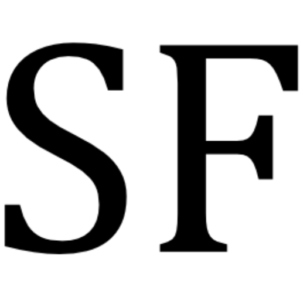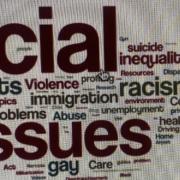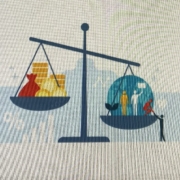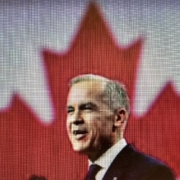A Complexity Perspective on Canada’s Challenge – Part I
Congratulations to our new Prime Minister—and to the Canadians who rejected the negative campaigning and dubious claims of the Conservatives and their Trump-lite leader. We can take a moment to pat ourselves on the back, but we are by no means out of the woods. Our Prime Minister, his colleagues, and we Canadians still have much to do.
PM Carney’s electoral success stemmed largely from our perception of him as a leader with global credibility and deep economic insight. For many, his views on social justice, his belief that the economy should serve human prosperity and happiness, and his strong environmental credentials also played a role. And yes, he wasn’t Poilievre—perhaps most important of all. Now that the election is behind us, however we must all turn our focus to the serious challenges ahead.
This is the first in a series offering a perspective on the road forward, grounded in research on managing in complex environments. You might ask why, as a retired Canadian, I’d spend our precious summer days at my computer. The answer is simple: I believe we are at a pivotal moment in our history. As a proud first-generation Canadian, I feel a deep responsibility to contribute to the conversation. There are no do-overs. It’s all hands on deck—sunshine or not.
Canada’s Challenge: No Mean Feat
Much has been written about the “polycrisis” we face—a term describing multiple, simultaneous global challenges. But the problem isn’t just their simultaneity—it’s their interconnection. Income inequality, affordability crises, climate change, political extremism, populism, declining trust in institutions, and social unrest aren’t isolated issues. They’re entangled. Tackling them one by one is bound to fail. We cannot afford approaches that ignore their complex, systemic nature.
The Liberals’ election mandate reflects this multifaceted challenge. At the top of the list was managing our relationship with a volatile United States and finding a more independent path forward. PM Carney asserted that the era of Canadian reliance on the U.S. is over. He called this a “hinge moment” in history, declaring that we must build the strongest economy in the G7. That means eliminating internal trade barriers, accelerating infrastructure and energy projects, and significantly boosting defence spending. As he put it: “We will need to think big and act bigger. We will need to do things previously thought impossible at speeds we haven’t seen in generations.”
Ambitious indeed—and necessary. I agree we are at a crossroads and that bold, courageous action is needed. But the nature of a polycrisis means there are multiple “job number ones.” We cannot navigate this moment by tweaking the status quo, recycling old policies, or protecting entrenched interests. And we certainly don’t have time to waste.
This means confronting climate change and social justice head-on—housing and affordability, to name just two pressing issues. Prosperity must be shared, not hoarded by the privileged few. We must be willing to challenge vested interests and prevailing ideologies and to be disruptive when necessary. And we must be prepared to stand up to the 0.01% who often call for disruption – just so long as their interests are not affected.
We must begin building the Canada of the future. If we want to avoid the rise of divisive populism and resist being pulled down the same destructive path the U.S. is on, we must, as Kate Pickett suggests in her recent article, A Fair Future: How Equality Will Define Europe’s Next Chapter, “foster political narratives that emphasize cooperation, community, and shared prosperity.”
If we fail to make real progress, if Canadians don’t feel a visceral sense of hope, Carney may become, like Biden in the U.S., just a brief pause before a return to MAGA-style politics.
Why We Need a Different Approach to Complexity
Most of us recognize we live in a complex, interconnected world. Yet the advice and solutions often proposed ignore that reality. They reduce everything to data and tools, as if good leaders can simply plan, measure, and control outcomes.
This mindset stems from the mechanical, reductionist thinking of the modern era—expecting linear causality (if X, then Y), assuming reversibility, and trusting things will “balance out.” You’ve probably heard something like, “If it doesn’t work, we’ll just go back to how things were.” Complexity theorist Jean Bolton, in her book, The Dao of Complexity, compares this to weight management: eat too much this week, eat a little less next week—it’ll all even out.
But in complex systems, actions are often irreversible. Cause and effect are nonlinear (think “butterfly effect”). A small change can have outsized, unpredictable impacts. We cannot forecast or control outcomes with any real certainty.
A Complexity Perspective
To address complex challenges, we must think differently. Valuable insights come from the work at the University of Hertfordshire’s Complexity and Management Centre, which research blends complexity science and social science to reimagine leadership and management.
A useful metaphor for complexity is the difference between solving a sudoku puzzle and raising children. A sudoku may be complicated, but it’s solvable and repeatable. Child-rearing is not. You can raise three kids under the same roof, with the same schools and values—and they’ll turn out entirely different. Even if you started over, you’d likely get a different result.
Studying complexity isn’t easy. You can’t run controlled experiments. Variables are infinite. Causality is hard to isolate. So researchers use analogies—like computer simulations known as complex adaptive systems. One example is BOIDS, a program that mimics bird flocking behavior using just three rules: avoid crowding, match direction, and stay close. The resulting “murmurations” are dynamic, coordinated, and unpredictable—no one BOID is in charge. This is emergence: outcomes arising from countless individual interactions. You may know it by the expression “the whole is more than the sum of its parts”.
This model can help us understand what is going on for us. In our lives, patterns emerge from the very many interactions we have as individuals and groups with each other and with the environment. These patterns influence us, and we in turn influence them. But unlike BOIDS, we are not identical. We’re shaped by emotions, history, power dynamics, intentions, and beliefs. Our interactions create dynamic, ever-shifting patterns that form and reform us individually and collectively.
This is where the social sciences become critical. Fields like sociology, group dynamics, and pragmatic philosophy help us understand the messy, emotional, human side of collective life—something traditional leadership models often ignore.
In short, how we relate to one another matters deeply. We’re all participants in shaping the larger patterns of society—and in turn, those patterns shape us. Some have greater influence, but no one has control. Our personal histories shape what we see, expect, and believe to be “normal” or “true.” In such a world, there is no single “right answer”—what works today may fail tomorrow as conditions evolve.
What’s Next
Any chance of Canada successfully dealing with the challenges we face, requires that we have a clear sense of the patterns that have formed us. My next blog explores one of the most powerful patterns shaping modern life: neoliberalism—an ideology that has profoundly influenced what is happening today and, arguably, led us to this state of polycrisis.










Trackbacks & Pingbacks
[…] In Part I of this series, we looked at research from the Complexity and Management Centre at the University of Hertfordshire, which shows that what happens in society emerges from the web of our collective actions, inactions, and intentions. From these interactions, patterns form that shape both our individual and shared existence. These patterns cannot be controlled or predicted with certainty. […]
Comments are closed.